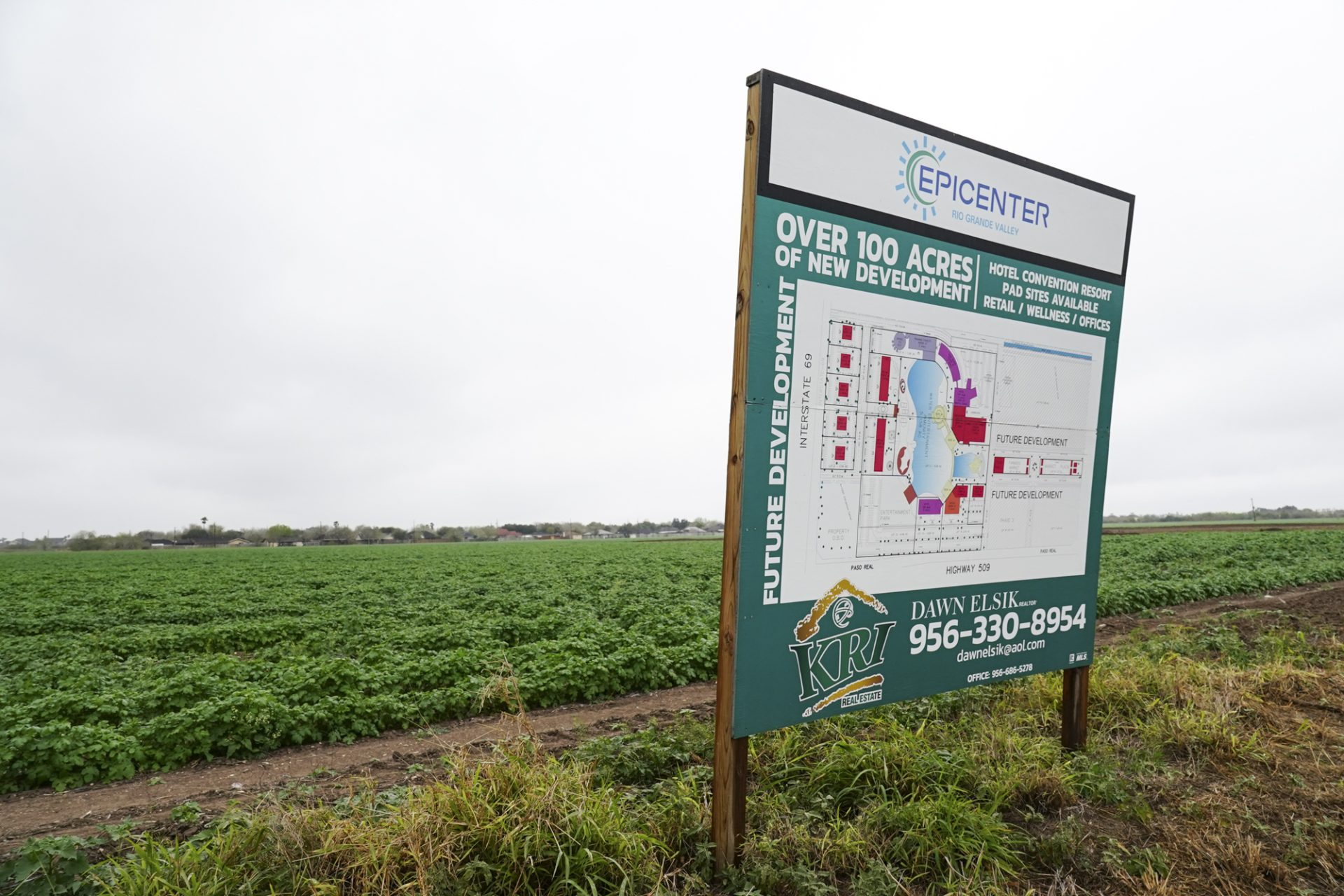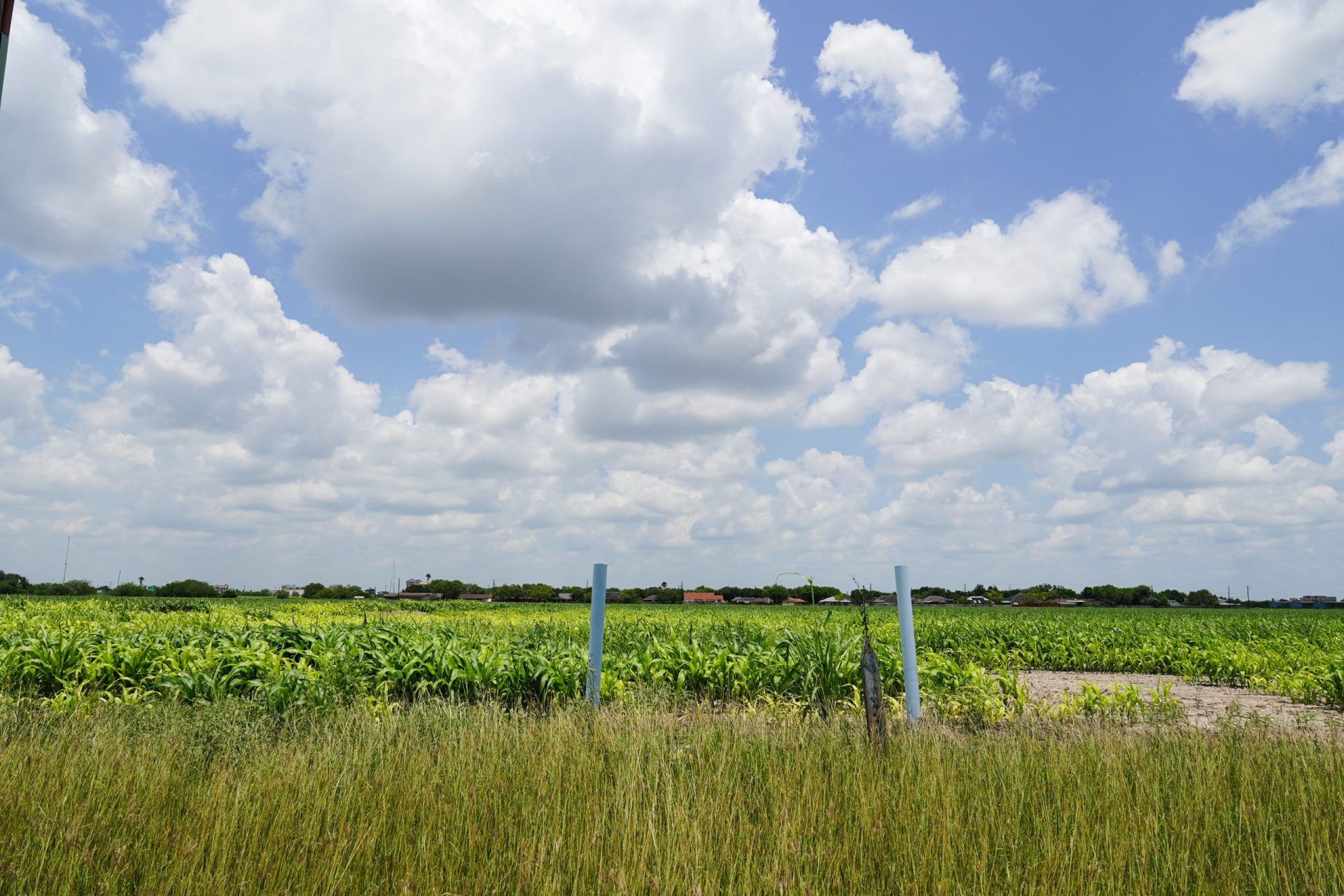|
Only have a minute? Listen instead
Getting your Trinity Audio player ready...
|

SAN BENITO — After falling about a year behind schedule, developers of a proposed $711 million project aimed at building a retail and entertainment mecca around a hotel and convention center are requesting city officials extend a tax increment reinvestment zone agreement to 2026.
But members of the city’s new commission are calling on Western Spherical Developers to start construction on the proposed RGV Epicenter project, nearly two years after its groundbreaking, or face cutting ties with the city.
“I’ll be looking for this to get off the ground very quickly, or I’m going to be looking at other options,” City Commissioner Pete Galvan said in an interview. “We need to see some progress. I’m tired of entertaining smoke screens.”
During a July 18 meeting, commissioners met in closed session before holding off on taking action after discussions into “incentives or business prospect that (the) city seeks to locate within the RGV Epicenter project.”
Losing prospective business
Nearly two years after calling on commissioners to create the tax increment reinvestment zone along the 115-acre proposed project site near FM 509 and Shafer Road, developer David Miles is requesting they extend the zone’s agreement from 2022 to 2026, Galvan said.
Tax increment reinvestment zones are public financing tools used to help fund economic development projects in which properties’ assessed values are frozen based on the theory those values will increase. The increased property taxes collected would make up the increment.
Like some commissioners, Galvan expressed concern the tax zone prohibits the city from considering other business prospects proposing projects within the site.
“There have been other inquiries about the land use,” he said. “We’ve been passing up opportunities, and we’re not in a position to be passing up opportunities.”
Requesting tax zone extension
Meanwhile, the developer believes the tax zone would generate more revenue if the city extended the agreement to 2026, Linda Merritt, the project’s spokeswoman, stated.
“Initiating TIRZ in 2026 versus 2022 allows for maximizing the TIRZ value capture,” she stated. “TIRZ is paid for after public improvements to the development have been made. As previously discussed, RGV Epicenter’s schedule was accelerated from a four-phased schedule to a schedule that will bring forth simultaneous development of all four sections. With a simultaneous development, resources can be leveraged and maximized for greater efficiency and results. This means the more infrastructure and vertical construction that is accomplished by 2026, the TIRZ is maximized providing a greater return on the value capture.”

Reviewing project viability
Now, Commissioner Tom Goodman is reviewing the project about five years after Miles proposed RGV Epicenter to the city’s past administration.
“We’re looking at this really hard right now,” he said in an interview. “Can this all be brought to fruition and actually happen? We want it to happen. It would be wonderful for the community. We’re going to do what we can to make it happen and, if not, move on.”
Meanwhile, commissioners are reviewing Miles’ request to extend the tax zone agreement, Goodman said.
“We don’t want to commit ourselves to long-term agreements without seeing this actually come to fruition,” he said. “If we weren’t tied up in this, we could possibly make other (projects) happen. There have been other entities looking for that piece of land. What has the lost opportunity cost us?”
Developer owing EDC
Like Goodman, Commissioner Deborah Morales noted the developer has not been making monthly $1,000 payments on a building at 2550 E. Expressway 83 leased from the city’s Economic Development Corporation in June 2022, while the agency has been paying the property’s delinquent taxes.
“He owes the EDC as well. How do you loan money when they already owe you?” Morales questioned, referring to the developer. “You haven’t produced anything, and it doesn’t seem like you will. This community has waited too long. This commission is looking for results now.”
In reviewing the project, Morales pointed to documents showing the developer’s agreement with the EDC requires he pay the EDC $20 a day for every day he is late paying on the lease agreement.
Meanwhile, Miles has cited the coronavirus pandemic’s supply chain crisis’ escalations of materials’ costs as a factor behind the project’s delays.
Costs to city
For months, Galvan’s raised questions surrounding city expenses incurred since Miles presented the project to former City Manager Manuel De La Rosa about five years ago.
So far, the city’s requested lobbyist Parker McCullough work to help former State Sen. Eddie Lucio Jr. and former State Rep. Eddie Lucio III pass House Bills 4347 and 2199, which allow cities to spend hotel occupancy tax revenue generated through developments to fund construction of convention centers and sports and entertainment projects.

The two bills would help Miles fund costs through hotel occupancy tax revenue.
Galvan also pointed to De La Rosa’s and former City Attorney Mark Sossi’s work in reviewing the project’s documents.
“It’s a cost in staff and time,” he said. “We’re using city resources.”
Background
What would become the city’s biggest economic development project would create 1,013 jobs along with an additional 1,077 jobs during a three-year construction period, Miles has told commissioners during meetings.
As part of the project, Miles proposed the development of a sprawling “village” featuring two hotels, an entertainment center, a sports complex, restaurants and retail shops along with a five-acre “Crystal Lagoon.”
About five years ago, Tammy Huerta, daughter of the late Grammy-award winning singer Freddy Fender, helped spark talks with De La Rosa, Miles told commissioners.
Editor’s note: This story has been updated for clarity.



